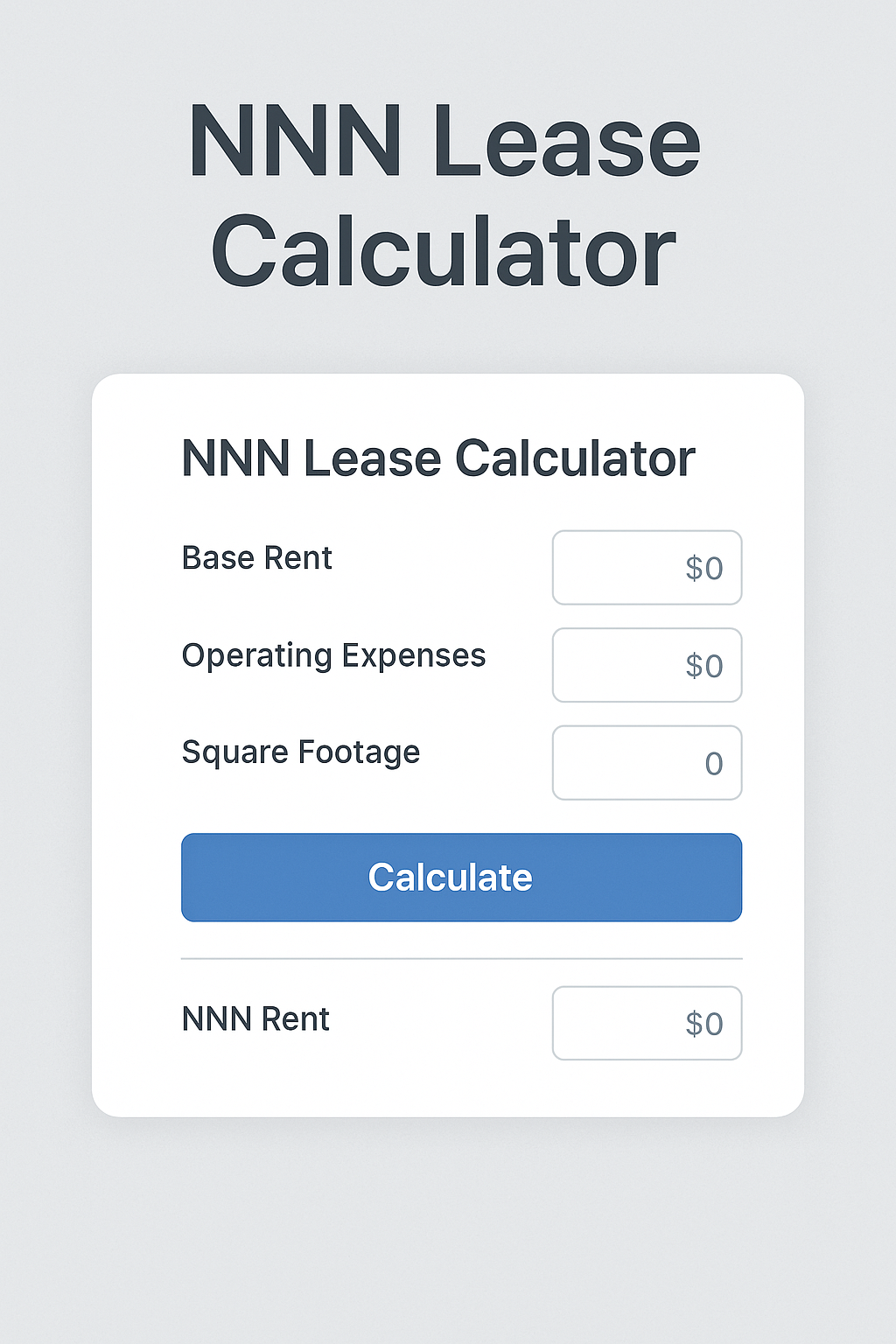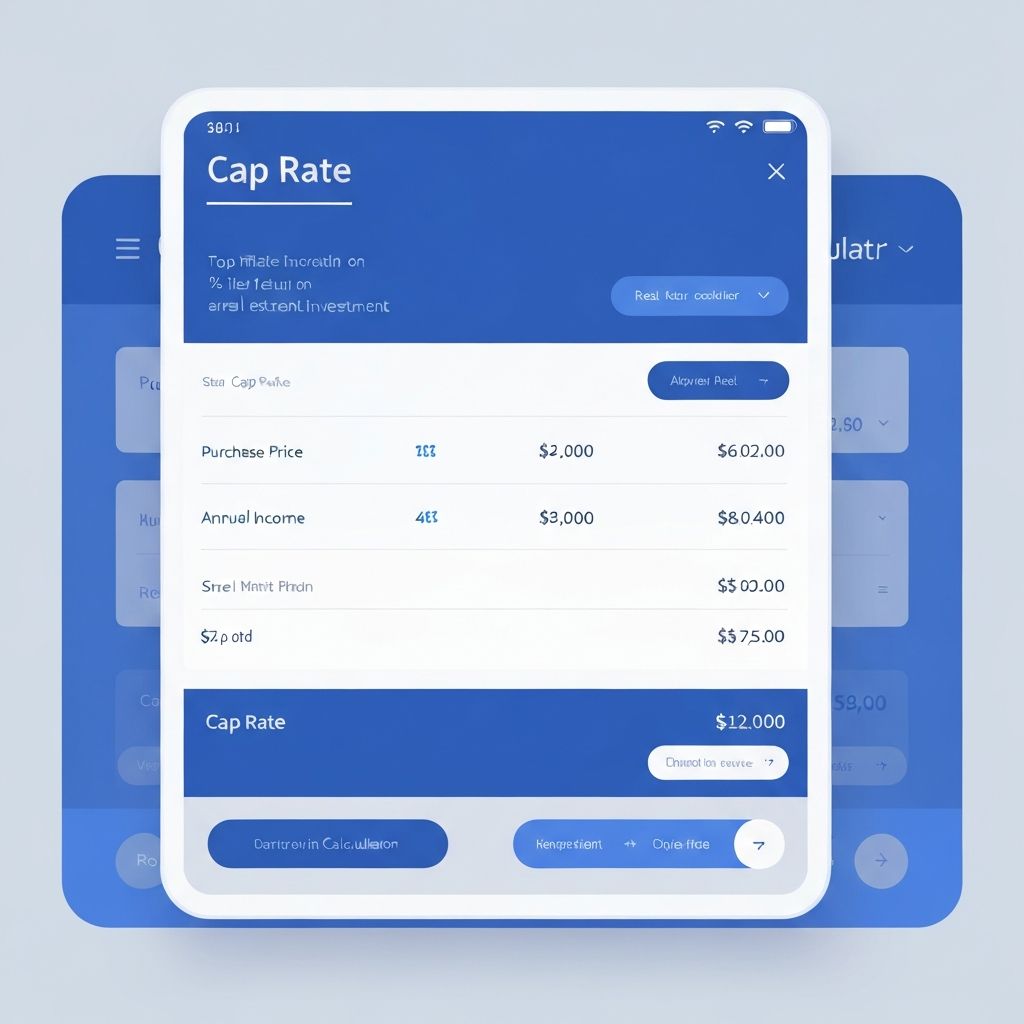Commercial Real Estate Investment Resources
Educational guides and tools to help you make informed decisions about net lease property investments.
Featured Resources

Learn how to defer taxes when selling investment properties by reinvesting in like-kind properties.

Understand how bonus depreciation can provide significant tax benefits for commercial real estate investors.

Use our interactive calculator to estimate your potential tax savings with a 1031 exchange.

Calculate commercial lease costs including base rent, NNN expenses, and broker commissions for single, double, and triple net leases.

Calculate cap rate, NOI, and cash on cash return for real estate investments. Analyze property values and compare investment opportunities.
Understanding Net Lease Properties
Single Net Lease (N)
In a single net lease, the tenant pays base rent plus property taxes. The landlord remains responsible for insurance, maintenance, and other operating expenses.
Double Net Lease (NN)
In a double net lease, the tenant pays base rent plus property taxes and insurance premiums. The landlord remains responsible for structural maintenance and common area expenses.
Triple Net Lease (NNN)
In a triple net lease, the tenant pays all property expenses, including taxes, insurance, and maintenance, in addition to base rent. This is the most common type of net lease in commercial real estate.
Absolute Net Lease
An absolute net lease places all property expenses and risks on the tenant, including structural repairs and replacements that might not be included in a standard triple net lease.
Ground Lease
In a ground lease, the tenant leases only the land and owns the building constructed on it. These typically have long terms (50-99 years) and may be structured as NNN leases.
Key Investment Terms
Cap Rate
The capitalization rate is the ratio between the net operating income and the property asset value, expressed as a percentage.
NOI (Net Operating Income)
The income generated by a property after deducting operating expenses but before mortgage payments and income taxes.
Cash-on-Cash Return
The ratio of annual cash flow to the total cash invested, expressed as a percentage.
1031 Exchange
A tax-deferred exchange that allows investors to sell a property and reinvest the proceeds in a like-kind property while deferring capital gains taxes.
Bonus Depreciation
A tax incentive that allows businesses to deduct a large percentage of the purchase price of eligible assets in the first year.
Cost Segregation
A tax planning strategy that identifies and reclassifies personal property assets to shorten the depreciation time for taxation purposes.